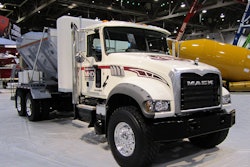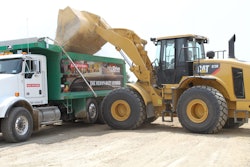A federal court has given the Federal Motor Carrier Safety Administration until Feb. 6 to answer a cease-and-desist motion regarding electronic onboard recorders. On Tuesday, Jan. 24, the U.S. Court of Appeals for the Seventh Circuit issued the deadline for FMCSA’s response to the Owner-Operator Independent Drivers Association’s motion.
Last August, the association successfully appealed the agency’s 2010 recorder rule. That regulation would have required EOBRs for all trucks used by a carrier with a greater than 10 percent rate of noncompliance with hours-of service regulations in any single compliance review.
The court determined that “the rule cannot stand because the agency failed to consider an issue that it was statutorily required to address.” The Truck and Bus Safety and Regulatory Reform Act of 1988 “requires the agency to ensure that any such device is not used to ‘harass vehicle operators.’ ”
Since that decision, OOIDA has stated agency officials pursued “a policy of encouraging motor carriers to adopt the use of EOBRs without first promulgating regulations ensuring that such devices are not used to harass drivers.” The association included an October news report to illustrate FMCSA’s policy direction in exhibits submitted to the court.
The August ruling eliminated any provision in regulations for “adoption of a device called an ‘EOBR,’ either under an agency mandate or voluntarily,” OOIDA attorney Paul Cullen wrote in his November letter to the FMCSA’s chief counsel.
A Notice of Proposed Rulemaking has not been published to address options for ensuring that the devices, when used for HOS enforcement, are not used to harass drivers.
“Under no circumstance should the FMCSA permit or facilitate the deployment of a device to be used as an hours-of-service enforcement tool that the Seventh Circuit declared was noncompliant with a federal statute,” Cullen wrote.
The agency’s attorney had responded that the court ruling has no effect on carriers that install and use HOS monitoring devices that satisfy preexisting regulatory requirements.
OOIDA wants the court to direct FMCSA to “cease and desist from authorizing, sanctioning or in any way encouraging” using electronic monitoring devices to increase HOS compliance until the rule ensures the devices will not be used to harass drivers.












